
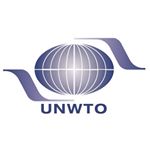
UNWTO is deeply shocked by the tragic attack perpetrated in Istanbul, Turkey.
MADRID, Spain – On behalf of the entire international tourism community, UNWTO expresses its heartfelt condolences to the families and friends of the victims and to the Turkish people in this difficult moment.
“On behalf of the entire international tourism community, UNWTO conveys its heartfelt condolences to the families and friends of the victims and expresses its full solidarity with the people and the Government of Turkey” said UNWTO Secretary-General, Taleb Rifai.
“This tragic event reminds us once more that we are facing a global threat that requires a firm and coordinated response by all governments and the international community. Turkey is a leading tourism destination and we are confident it will continue to be so; it is time to stand by Turkey in facing this challenge” he added.

UNWTO projects a positive 2016 for tourism in Greece
UNWTO Secretary-General Taleb Rifai has expressed the confidence of the Organization in the continued growth of the tourism sector in Greece. In 2015, international tourist arrivals to Greece grew by 7% to reach 23.6 million, while exports generated by the sector increased by 6% to euro 14.2 billion.
Meeting Minister of Tourism of Greece Elena Kountoura at the side-lines of ITB to discuss the situation and prospects of tourism in Europe and Greece, Mr Rifai said “we have no doubt that Greece will maintain a powerful image worldwide as a major tourism destination and that the country will consolidate its growth in 2016, as shown by booking trends”.
Ms. Kountoura said “the Aegean islands are already showing a positive trend in bookings and are ready to welcome an increased number of tourists for the current season”. The diversification of the touristic offer, the development of new destinations and the opening of high-end accommodation facilities and services are some of the measures taken by the Greek government to enhance tourism, as highlighted by the Minister of Tourism of Greece in the meeting.
“Meeting with leading tour operators at ITB, we have received very positive feedback from the German travel market, which has confirmed the increased demand in bookings for Greece”, added Ms. Kountoura.
This news is timely for Greece as the country is advancing implementation of its new tourism policy framework, launched in 2015 to enhance international tourism.

UNWTO and Egypt discuss recovery measures at ITB
UNWTO Secretary-General, Taleb Rifai, met the Minister of Tourism of Egypt, Hisham Zaazou, on the side-lines of ITB to discuss the current measures being implemented by the country to stimulate recovery (Berlin, Germany, 9 March 2016).
The meeting followed up on the official visit of Mr Rifai to Egypt last month, where he had the opportunity to meet President Abdel Fattah el-Sisi and Prime Minister Sherif Ismail to discuss the tourism situation in the country and the recovery plans being implemented.
Meeting with Minister Zaazou in Berlin, the UNWTO Secretary-General commended the measures taken by Egypt to restore market confidence and expressed the full support of the Organization to this programme.
“The work of the Ministry and of Minister Zaazou in promoting the highest political support for the sector, enhancing tourism safety and security by successfully integrating the sector into risk and emergency management structures both at national and local levels, and the various marketing initiatives taken in key markets are the correct ways to restore confidence and accelerate the recovery of tourism in Egypt”, said Mr Rifai.
“We should never forget that Egypt’s tourism sector is one of the world’s most remarkable success stories. In the last decade, the number of visitors to Egypt practically tripled and so did the exports generated by international tourism. Despite current challenges Egypt is today, and will continue to be, a world-leading tourism destination, capturing one in every four international tourist arrivals to the Middle East”, said Mr Rifai.
Mr Rifai and Minister Zaazou also discussed the actions that the Ministry has swiftly taken to communicate with competent authorities and the public in source markets on safety and security issues, to unlock the support of airlines and tour operators, to incentivise demand, and to engage key players in Egypt in these concerted efforts. UNWTO experts have visited Egypt in recent months to support the Ministry in these areas.
The meeting was also an occasion to further discuss the upcoming UNWTO City Tourism Summit being held later in 2016 in Cairo.
“We are holding this important event in Cairo as a clear sign of confidence in Egypt, and we trust that it will be a great opportunity to showcase all the progress and initiatives that Egypt has been implementing to accelerate recovery”, added Mr Rifai.

Private sector committed to fight child exploitation in tourism
The 31st Meeting of the World Tourism Network on Child Protection, held on the occasion of ITB Berlin, focused on the role and initiatives of the private sector to fight Child Exploitation in tourism. Awareness raising, training of staff and the implementation of measures along the whole value chain of tourism were pointed out as critical.
“We need to unite to fight child exploitation and the commitment of the private sector is key” said UNWTO Secretary-General opening the meeting.
Carol Bellamy, Chair of the Network, recalled the role of the Network as a platform to share research and good practices in the fight against the exploitation of children in tourism.
At the meeting, the Chair of the High Level Global Task Force to End Sexual Exploitation of Children in Travel and Tourism, Najat Maalla M’jid, shared the first findings of the Global Study carried out by the Task Force. Lack of reporting, weak legislation and the anonymity of the Internet were pointed out as some of the main challenges in child protection from sexual exploitation in the sector. The report aims to also address the chronic lack of robust evidence and comparable data on this issue.
The Association of British Travel Agents (ABTA) stressed the importance of providing training to the staff on how to identify possible situation of child exploitation as well as dealing with new emerging trends in the sector such as ‘voluntourism’ while the TUI Group shared their initiative ‘A collective NO to sexual exploitation of children in holiday destinations initiatives to promote the inclusion of measures to prevent and fight the exploitation of children within the whole tourism value chain including actions on training, awareness raising among host communities
Other initiatives presented included a project from the Network of Strategic and International Studies which evaluates best practices from around the world and work of the Airline Ambassadors International which focus on training airline professionals to flight human trafficking.
The World Tourism Network on Child Protection is an open-ended network facilitated by UNWTO featuring the multi-stakeholder participation of a range of tourism stakeholders – governments, international organisations, non-governmental organisations (NGOs), tourism industry groups and media associations. Its mandate is to prevent all forms of youth exploitation in the tourism sector (i.e. sexual exploitation, child labour and child trafficking). The Network’s meetings, held annually at the worlds’ foremost Travel and Tourism Fairs, serve as a platform to exchange experiences and best practices, present awareness-raising materials and capacity building tools, and promote the adoption of professional codes of conduct or other responsible practices in line with the UNWTO Global Code of Ethics for Tourism.

Public-private partnerships key to the success of Silk Road Tourism
The 6th Silk Road Ministers Meeting held at ITB Berlin on 9 March 2016 focused on the role of public and private sector partnerships (PPPs) in the development of tourism along the Silk Road. Participants discussed how PPPs can advance the issues of infrastructure, product development and marketing.
Addressing the meeting, UNWTO Secretary-General said “governments must lead and direct tourism policies, but the engine behind tourism development is the private sector, and thus one cannot work without the other”.
The role of PPPs was stressed by the President and CEO of the World Travel and Tourism Council (WTTC), David Scowsill, who recalled the need to create “mechanisms to promote the consultation of the private sector in decision making and legislation”.
Ministers and high level officials from Bulgaria, Bangladesh, Kyrgyzstan, the Czech Republic, Cambodia and Iran shared their views and experiences in this area, while Kazakhstan presented the opportunities to promote the Silk Road arising from the upcoming Expo Astana 2017. Other major international events highlighted as key to forging partnerships between public and private stakeholders were the Silk Road Conference on Nomadic Tourism and Sustainable Cities (Ulaanbaatar, Mongolia, 13-15 October 2016) and the Global Tourism Economy Forum 2016 (Macau, China, 14-16 October 2016).
At the meeting, UNWTO launched the Silk Road Action Plan for 2016/2017. The Plan, which includes priority actions in 1) marketing and promotion; 2) capacity building and 3) travel facilitation, will be further discussed at the 6th UNWTO Silk Road Task Force Meeting to be held in Urmia, Iran on 22-25 April 2016.
UNWTO Affiliate Member TripAdvisor presented the TripAdvisor 2016 Travel Trends for the Silk Road. The research based on a survey of 10,678 travellers shows that 8 in 10 travellers have heard of the Silk Road and that the top ten countries associated with the Silk Road are China, Mongolia, Kazakhstan, Uzbekistan, Iran, Turkey, Turkmenistan, Kyrgyzstan, Tajikistan and Azerbaijan. The research, conducted in collaboration with UNWTO, also found that travellers would be 41% more likely to travel to the Silk Road if they could obtain a single Silk Road visa.
The UNWTO Silk Road Programme is a collaborative initiative designed to enhance sustainable tourism development along the historic Silk Road routes. It aims to maximize the benefits of tourism development for local Silk Road communities, while stimulating investment and promoting the conservation of the route’s natural and cultural heritage. Additionally, it is working to foster greater cooperation between Silk Road countries and regions, with the established aim of creating a seamless and memorable Silk Road travel experience.
Currently the Silk Road Programme engages 33 UNWTO Members States, UN agencies such as UNESCO and UNCTAD as well as an extensive network of private sector stakeholders.

UNWTO strongly condemns attack in Grand Bassam, Côte d’Ivoire
On behalf of the international tourism community, UNWTO strongly condemns the attack at a hotel in the town of Grand Bassam, in Côte d’Ivoire and conveys its heartfelt sympathy to the families of the victims.
“We are appalled by this horrible act of violence. Our thoughts at this difficult moment are with the families and friends of the victims and the people of Côte d’Ivoire” said UNWTO Secretary-General, Taleb Rifai.
UNWTO reaffirmed its full support and confidence in Côte d’Ivoire’s tourism sector which has been growing over the last years.
“We trust that tourism will continue to play a key role in advancing development in Côte d’Ivoire and we very much look forward meeting in Abidjan on 19-21 April for the 58th UNWTO Commission for Africa and the 10YFP Sustainable Tourism Conference & Symposium” added Mr. Rifai.
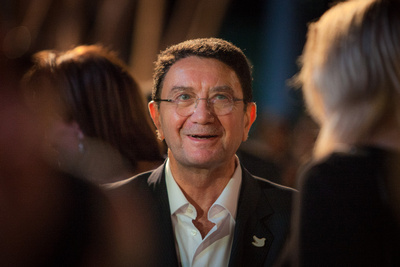
UNWTO Secretary General´s Speech at the Opening Ceremony of ITB Berlin 2016
Mr. Michael Müller, Governing Mayor of Berlin Ms. Iris Gleicke, State Secretary, Federal Ministry of Economic Affairs and Energy Mr Moosa Zameer, Minister of Tourism of the Maldives Dr. Christian Göke, CEO, Messe Berlin GmbH Dr. Michael Frenzel, President of the German Tourism Industry Federation (BTW) and Chairman of the World Travel and Tourism Council (WTTC) Ladies and gentlemen, dear friends, Guten Abend.
Wilkommen in Berlin, Wilkommen zur ITB. It is my great pleasure to address you once again at the opening of ITB. On behalf of the World Tourism Organization, allow me to start by congratulating ITB on the occasion of its 50th anniversary and by thanking ITB for the important contribution it has made for over half a century to the development of the tourism sector. When it was first launched in 1966, this pioneering event hosted 9 exhibitors from 5 countries and was attended by 250 trade visitors. Today, over 100.000 trade visitors from more than 180 countries gather in Berlin for what has become a leading global showcase for tourism.
UNWTO is a very pround partner of ITB and we look forward continuing working with you for the next 50 year. Allow me also to welcome the Maldives as this year´s Official Partner Country of ITB. The islands´ natural beauty, white beaches and abundant marine life attract visitors from all over the world, and have made tourism a lifeblood for the Maldivian economy. Dear friends, It is indeed a great privilege to address you another year and set the scene of world tourism and the challenges facing us.
We live in challenging times, yet tourism continues to bring us hope. Despite a slow and uneven global economic recovery, despite growing geopolitical challenges, health scares and security concerns, 2015 was another record year for international tourism. International tourist arrivals grew by 4.4% to reach 1.2 billion (1.184 million), meaning 50 million more tourists travelled the world in 2015 than in 2014. Looking ahead, UNWTO is confident that despite increased volatility and uncertainty, 2016 will bring another year of growth to our sector, with an estimated increase of 4%. Dear friends, The robust performance of tourism is contributing to economic growth, job creation and better lives in many parts of the world, yet to ensure that this continues to be the case we must address four key priorities: 1. Promoting safe and seamless travel Global challenges demand global solutions and tourism development greatly depends upon our collective capacity to promote safe, secure and seamless travel.
As has been highlighted too often in recent times, safety and security are priorities for all and we need to ensure tourism is fully integrated into national and international security agendas. On the other hand, the security challenges that we face today should not prompt us to build new walls. On the contrary, enhancing security and enabling more seamless travel should always go hand-in-hand. 2. Enhancing the role of technology and innovation in tourism We are living through what many have called the 4th industrial revolution. Screens are everywhere, connecting and empowering billions of people across the planet in real time, providing a voice to the silent and creating a new sense of belonging to a newfound global community.
Technology is rapidly changing consumers’ behaviour, business models, including the ‘so called sharing economy’ and destination management. We need to better understand the impact of technology on our sector and maximize through innovation the new opportunities it has created to improve the competitiveness of destinations, make travel safer and easier, and manage our natural resources more effectively. 3. Embrace the sustainability agenda The adoption by world leaders of both the Paris Agreement on climate and the 2030 Agenda for Sustainable Development made of 2015 an historic year for the international community. It is now time to step up our efforts to advance policies and business strategies that ensure the contribution of the tourism sector to this 17-goal agenda for people and planet. Climate change mitigation, effective resource management, poverty reduction and inclusive growth need to be at the center of tourism development.
We must make it clear that economic growth and sustainability are not at odds. It is not a matter of ethical responsibility; it is a matter of realizing benefits for all. 4. Building national tourism policies None of the above will be possible without political will. A UN report dated back from 1952 on the development of the Maldives pointed out that tourism was not a sector for the country as it did not have the necessary infrastructure. The will and the commitment of the people of the Maldives have obviously proven them wrong. Tourism´s ability to effectively support the economic, social and environmental foundations of many nations has raised the need for the sector to play a bigger role in national development, particularly at the highest levels of political decision-making.
Establishing tourism as a national priority is fundamental to securing the financial and political support needed to advance the sector. 2017 has been declared by the United Nations as the International Year of Sustainable Tourism for Development. This is a unique opportunity to advance the relevance of our sector in global and national agendas and I invite you all to make the most of this occasion and shine a spotlight on tourism. Dear friends, Terrorism, the refugee crisis, the fight against climate change and the jobless recovery that the world still faces: all are calls for our collective action. As we embrace a new sustainable development agenda let us ensure that while we build a more competitive sector we are also contributing to a better world. Vielen Dank. Thank you.

Safe and seamless travel, technology and sustainability
Insuring safe and seamless travel, enhancing the opportunities brought by technology and accelerating the shift towards a more sustainable sector are the priorities for the sector said UNWTO Secretary-General, Taleb Rifai, opening the 50th edition of ITB Berlin. (Berlin, Germany, 8 March 2016).
Referring to the issue of tourism and security, he said: “Global challenges demand global solutions and tourism development greatly depends upon our collective capacity to promote safe, secure and seamless travel. We need to cooperate, not isolate”.
Mr. Rifai called for the full integration of tourism into the national and international security agendas and alerted that “the security challenges we face today should not prompt us to build new walls” and that “enhancing security and enabling more seamless travel should always go hand-in-hand”.
On the issue of technology and innovation, the UNWTO Secretary-General said: “We need to better understand the impact of technology on our sector and maximize the new opportunities it creates to improve the competitiveness of destinations, make travel safer and easier, and manage our natural resources more effectively.”
Calling upon the tourism sector to embrace the sustainability agenda, Mr Rifai said it was time to “step up the efforts to advance policies and business strategies that ensure the contribution of the tourism sector to the Sustainable Development Goals”.
“Climate change mitigation, effective resource management, poverty reduction and inclusive growth need to be at the center of tourism development. We must make it clear that economic growth and sustainability are not at odds”, he added.
Addressing these priorities can only be achieved through increased international cooperation and cross-cutting national tourism policies. “Tourism´s ability to effectively support the economic, social and environmental foundations of many nations has raised the need for the sector to play a bigger role in national development, particularly at the highest levels of political decision-making“, Mr Rifai said.
Mr Rifai recalled that despite a slow and uneven global economic recovery, growing geopolitical challenges, health scares and security concerns, 2015 was another record year for international tourism.
International tourist arrivals grew by 4.4% to reach 1.2 billion (1.184 million), meaning 50 million more tourists travelled the world in 2015 than in 2014.
“Looking ahead, UNWTO is confident that despite increased volatility and uncertainty, 2016 will bring another year of growth to our sector, with an estimated increase of 4%”, he said.
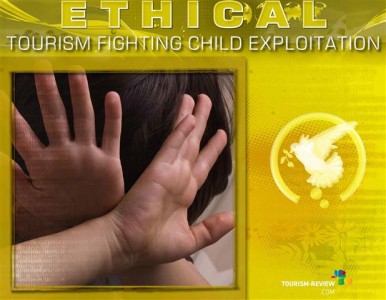
UNWTO on child exploitation: Nothing more than lip service?
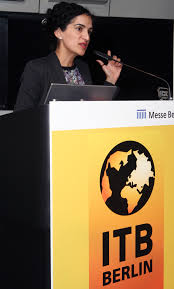 Tourism leaders around the world are pledging support to this initiative, and many voices of support have been heard over several years by a large contingency of world leaders and the United Nations World Tourism Organization (UNWTO).
Tourism leaders around the world are pledging support to this initiative, and many voices of support have been heard over several years by a large contingency of world leaders and the United Nations World Tourism Organization (UNWTO).
Alain St.Ange, the outspoken Seychelles Minister of Tourism and Culture, talked with UNWTO Wire on behalf of the newly-started Indian Ocean Vanilla Islands Organization on the topic of child exploitation in tourism.
Q: You were the founding President of the Indian Ocean Vanilla Islands – talk to us about your stand on child exploitation in tourism
Alain St.Ange: “It is sad that in this day and age, we are still talking about child exploitation, but the fact remains that this practice is still being promoted in different parts of the world and in different surroundings. As a region with tourism as its key industry, the Indian Ocean Vanilla Islands condemns child exploitation in tourism. Tourism is a people’s industry and remains an industry where respect must always be seen as the guiding strategy. The beautiful pictures of our dream islands would be artificial if underneath the surface, our innocent children were being exploited.”
Q: Do you personally condemn child exploitation in all its forms?
St.Ange: “To this pointed question, I simply answer with an unequivocal, “YES,” and I invite every Minister of Tourism to also openly make this statement.”
What has the World Tourism Network on Child Protection formerly the UNWTO Task Group against exploitation of children through tourism been doing over the many years this group has been in place?
eTN Publisher Juergen Steinmetz has been a member of this task group for almost a decade. He said: “We first had our task group meeting once a year in London during the World Travel Market (WTM), and once a year in Berlin during ITB. Several years ago, however, this was reduced to one yearly meeting during ITB only.
“All of us are dedicated volunteers or government officials and believe in this cause. I always paid my own way to travel to the other side of the world for this annual meeting, and donated my time, because I believed in this cause. I am sure this is the case with everyone else in our international group. “
“It is important for UNWTO as a United Nations agency to endorse and support the many global initiatives to fight this crime. Unfortunately, besides small talk, some excellent presentations, and a lot of lip service by UNWTO leaders, there has not been anything done by this group yet to be proud of.
For the last 5 years, this task group has been promised a budget of $5,000 to be used to showcase best practices on the official UNWTO website. Another proposed initiative was to establish a communication tool allowing task group members to communicate with other members of the group and to UNWTO officials. It has never been established. The webpage on unwto.org also was never established. The excuse: There is no staff and no money to maintain such an initiative. ”
Steinmetz went on to say: ” I applaud for UNWTO to hold this meeting, and to join THE CODE, but a lot more has to be done together with member countries, the World Travel and Tourism Council, (WTTC) PATA, ETOA and other credited leaders of our wonderful and money making industry.”
“I brought in this initiative, and it was seconded by every member of our group. Yet, here we are 5 years later, and still no funds have been made available so that we can move forward. Every year, I publicly voiced my criticism and confusion about the role of our UNWTO Task group, only to receive no response whatsoever. And then another year would go by, and we would be meeting at ITB again a year later in the same starting position, with no progress having been made.”
“Let us hope that ITB 2016 will mark not only 50 years ITB Berlin and a showcase of this billion-dollar travel industry, but also the beginning for UNWTO to finally put some resources behind this initiative and allow this task group to at the very least endorse some positive initiatives that can shared with the world. Incredibly, this task group has been in existence for 31 meetings, and this situation is quite embarrassing and shows it’s definitely not a priority by the UNWTO leadership as always proclaimed.”
“I will not be part of this group in 2017, if after the conclusion of ITB 2016, we don’t hear anything again for another full year. Protecting our children should be a top priority for the United Nations World Tourism Organization and the governments that make up this global group. i don’t think $5000.00 should stand in the way to endorse and share so many excellent activities by private groups, governments, police to combat this crime. I don’t want our industry to conspire with those that target our children for unspeakable acts committed within our great industry. A billion tourists and finding $5000.00 is not possible – this cannot be true.”
Even worse, entire industries had been absent from these meetings. For example, the billion Dollar Cruise Industry didn’t want to have any part of it and none of the cruise companies had any desire to include one of them to join the UNWTO Task Group.”
UNWTO Wire has reached out to UNWTO officials for comments, but so far no response has been received.
UNWTO will hold the 31st meeting of the World Tourism Network on Child Protection (March 10), when an initiative will take place to prevent all forms of child and youth exploitation in the tourism sector. Under the chairmanship of Carol Bellamy, the Chair of the Network and former Executive Director of UNICEF, the meeting will focus on Responsible Business Strategies and Child Protection in Tourism, highlighting the good practices championed by the tourism industry. The event will feature interventions from ABTA, TUI Group, and the Chair of the high-level global Task Force for the Protection of Children in Tourism, Najat Maalla M’jid, who will share the results of the Global Study on Sexual Exploitation of Children in Travel and Tourism.
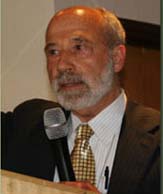
Women in Tourism: UNWTO will attend IIPT award ceremony during ITB Berlin
IIPT India In association with the UN World Tourism Organization (UNWTO) and ITB Berlin is conducting the first Global Peace Awards for Empowered Women in Tourism with the title “Celebrating Her.
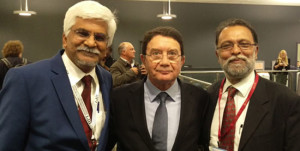 The event will be held on Friday, 11 Mar at ITB Berlin, Room New York 3, Hall 7.1a from 16:15 to 17:00. All are welcome.
The event will be held on Friday, 11 Mar at ITB Berlin, Room New York 3, Hall 7.1a from 16:15 to 17:00. All are welcome.
H.E. Alain St. Ange, Minister for Tourism and Culture, Government of Seychelles will be the Guest of Honour and Dr. Taleb Rifai, Secretary General of UNWTO will present the Awards. Ms. Anita Mendiratta – member Advisory Council IIPT India, will moderate the Awards Ceremony.
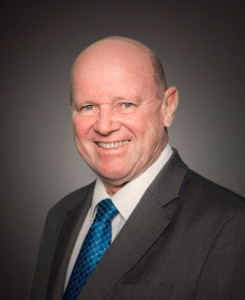
The IIPT India Global Awards, “Celebrating Her” are intended to acknowledge and celebrate exceptional women in the fields of travel, tourism and hospitality; individuals with a clarity of vision and mission who appreciate and believe that tourism, perhaps the biggest industry in the world, could become the first global peace industry and who have consistently worked towards fostering the tourism as a vehicle for peace.
The process of the Awards has been styled on the basis of the UNWTO’s mechanism of scouting for achievers across diverse activities who have in their unique way created innovative products and services that can be considered exemplary towards helping others whilst setting up and managing a business professionally and in line with the best international practices.
“Individuals who have demonstrated strong personal values and determination to make the difference are worthy of recognition and reward. They also need to be celebrated as role models for the younger generation to follow,” said Ajay Prakash, President of IIPT India
IIPT Founder and President, Louis D’Amore stated, “IIPT has been a believer and supporter of women empowerment since its founding in 1986 featuring models of empowered women leadership at each of our international summits and conferences beginning with H.E. Vigdis Finnbogadottir, then President of Iceland and the world’s first elected women Head of State, as Patron of the IIPT First Global Conference; featuring empowered women including Nobel Peace Laureate Wangari Maathai as keynote speakers; models of empowered women in concurrent sessions, particularly in the areas of community tourism and poverty reduction. IIPT is particularly proud of IIPT India’s initiative in presenting the First Global Peace Awards for Empowered Women in Tourism and is grateful for the support of ITB Berlin and the UN World Tourism Organization.”
The IIPT India awards “Celebrating Her” 2016 in partnership with ITB Berlin, UNWTO, WTTC, PATA, SKAL International, ICTP and MITM focus on women achievers across the Globe.
